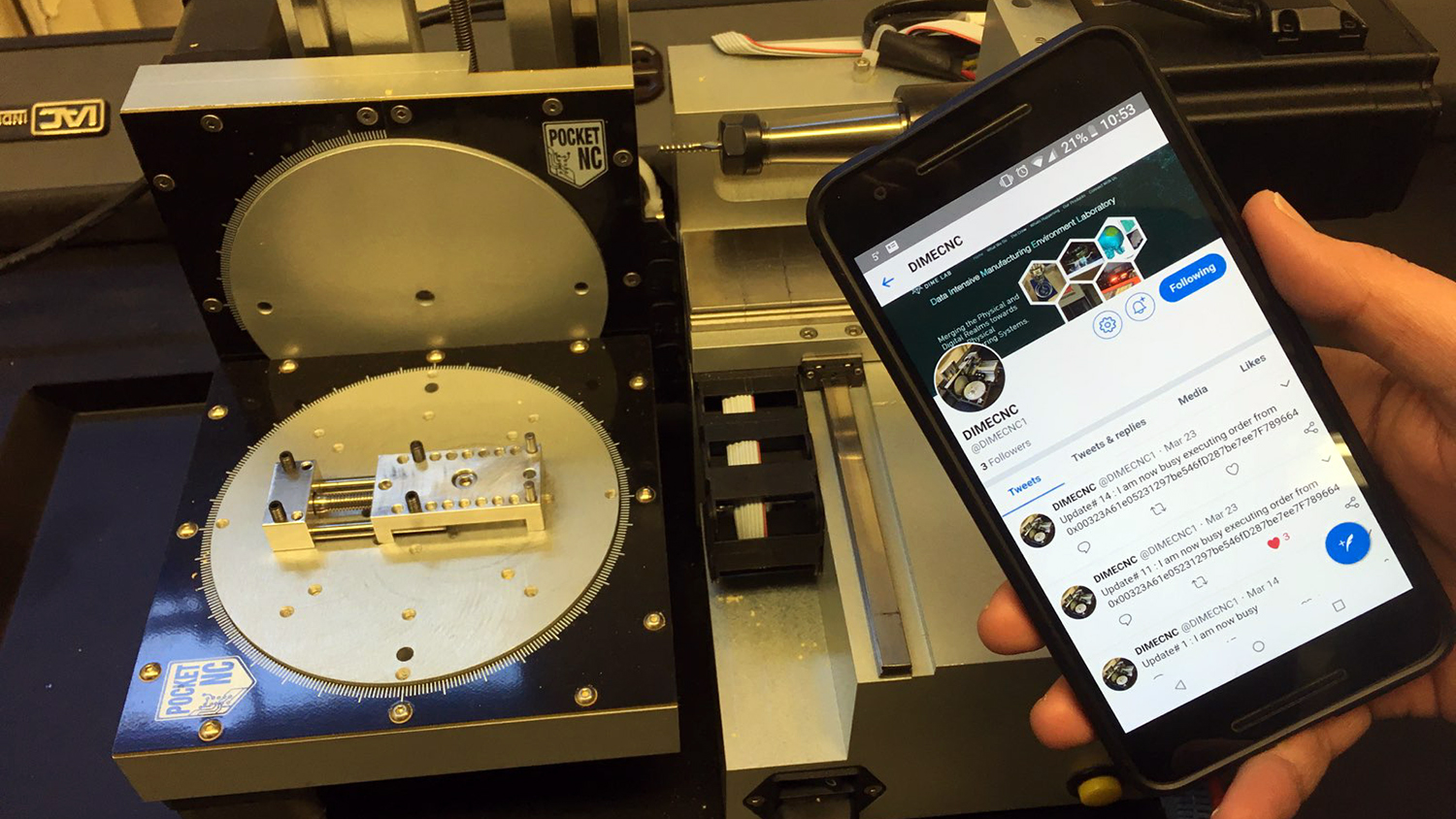For Immediate Release
Researchers at North Carolina State University are proposing the creation of a public, open-source network that uses blockchains – the technology behind cryptocurrencies – to share verifiable manufacturing data. The system could be used as a peer-to-peer network that allows companies to find small- and medium-sized manufacturers that are capable of producing specific components on a reliable basis.
“Small- and medium-scale manufacturers often lack the resources and network reach necessary to make all of their potential clients aware of their manufacturing capabilities,” says Binil Starly, corresponding author of a paper on the work and head of NC State’s Data Intensive Manufacturing Environment Lab.
“A public network like the one we’re proposing would help potential clients find manufacturers with relevant expertise and equipment in an efficient way,” says Starly, who is an associate professor in NC State’s Edward P. Fitts Department of Industrial & Systems Engineering.
“Our approach, called FabRec, would allow companies to automatically report about their manufacturing activities: which machines are being used, what materials they are working with, raw material inventory levels, whether the work is being completed on time, and so on,” says Atin Angrish, a Ph.D. student at NC State and first author of the paper.
“Because these updates are automated, users can be fairly certain that the information is accurate,” Angrish says. “And because it’s being done through the blockchain, which allows event logs to be traced to their source, there is accountability. So clients can find the right manufacturers, and manufacturers can find new clients, without relying solely on claims made in marketing materials.”
To demonstrate the viability of the concept, the researchers created FabRec – a publicly-accessible, prototype network that currently accepts input from a handful of machines.
“Our network shows that the concept is viable, but the next step would be to establish agreed-upon protocols with participating manufacturers,” Starly says. “That would allow the creation of code that permits users to report – and search for – any given set of parameters, such as type of product, production time, cost, and so on.”
“Future steps also include developing software that would allow us to authenticate sources entering data into the system – as well as identifying any unreliable sources,” Angrish says.
“We are now looking for manufacturers and IT sector partners to help us build up the network and establish it as a reliable, publicly accessible resource for supply chain professionals,” Starly says.
The paper, “A Case Study for Blockchain in Manufacturing: ‘FabRec’: A Prototype for Peer-to-Peer Network of Manufacturing Nodes,” will be presented at the SME North American Manufacturing Research Conference, being held in Texas this June. The paper was co-authored by Benjamin Craver, an undergraduate at NC State; and Mahmud Hasan, a Ph.D. student at NC State. The research was done with support from the National Science Foundation, under grant number 1547105.
-shipman-
Note to Editors: The study abstract follows.
“A Case Study for Blockchain in Manufacturing: ‘FabRec’: A Prototype for Peer-to-Peer Network of Manufacturing Nodes”
Authors: Atin Angrish, Benjamin Carver, Mahmud Hasan and Binil Starly, North Carolina State University
Presented: June 18-22, 46th SME North American Manufacturing Research Conference in College Station, Tex.
Abstract: With product customization an emerging business opportunity, organizations must find ways to collaborate and enable sharing of information in an inherently trust-less network. In this paper, we propose – “FabRec”: a decentralized approach to handle manufacturing information generated by various organizations using blockchain technology. We propose a system in which a decentralized network of manufacturing machines and computing nodes can enable automated transparency of an organization’s capability, third party verification of such capability through a trail of past historic events and automated mechanisms to drive paperless contracts between participants using ‘smart contracts’. Our system decentralizes critical information about the manufacturer and makes it available on a peer-to-peer network composed of fiduciary nodes to ensure transparency and data provenance through a verifiable audit trail. We present a testbed platform through a combination of manufacturing machines, system-on-chip platforms and computing nodes to demonstrate mechanisms through which a consortium of disparate organizations can communicate through a decentralized network. Our prototype testbed demonstrates the value of computer code residing on a decentralized network for verification of information on the blockchain and ways in which actions can be autonomously initiated in the physical world. This paper intends to expose system elements in preparation for much larger field tests through the working prototype and discusses the future potential of blockchain for manufacturing IT.
- Categories:



